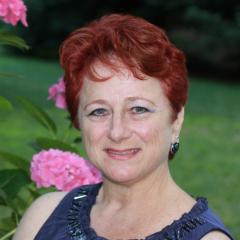
Yom Hazikaron – An Opportunity for Communal Grieving and Healing
About the time we started preparing for High Holy Days in Jerusalem during my first year of cantorial school, my son Brian started boot camp for the United States Marines. Back in the States, there aren’t too many Jewish mothers whose sons are Marines (though there was at least one cantor friend of mine in the same boat). I did feel a bit of a connection with the mothers of Israeli soldiers and even wrote a paper on the differences between the Israeli and U.S. military from the perspective of Jewish mothers.
When Yom Hazikaron was commemorated in April, I was bowled over by the way this day of memorial was celebrated. It truly was a day that memorialized those lost during the many wars in Israel, which have taken so many lives. Three things stand out in my mind. One was the siren sounding at sundown at the beginning of the holiday and then again in the morning. At the sound, everything stopped, even traffic. People got out of their cars, stood and observed two minutes of silence in memory of those who were lost. Throughout the day, the radio and television stations played music and either talked about or showed pictures of the fallen. I also remember going to a school for a ceremony there and seeing the wall with the names of alumni who had died in the wars. Students read poems and sang songs – it was very moving.
It made me sad to think about how we in the U.S. celebrate our Memorial Day by shopping the sales or having barbecues, often without giving a thought to those we have lost in wars. There are a few cemetery ceremonies by Veterans of Foreign Wars groups, but you don’t see much else. Granted, many people in the U.S. don’t know someone who died defending their country, even though our military is currently so active in other countries. While in school in New York, I visited a youth group on Long Island in which not a single person knew someone presently in the military. But even if we don’t know someone personally, we need to remember those who gave their lives to make us free.
Of course it’s different in Israel, where everyone has been affected. Most of us cannot fathom the depth of the effects of war that exist there. Yom Hazikaron gives the Israeli people a chance for communal grieving and healing. Of course this goes on to some degree year round, but on this one day, the whole country can remember together. That is powerful healing energy. We could use that kind of healing energy here, too.
Over the years, many songs have been written and sung in memory of fallen soldiers. “Hareut,” poem by Haim Gouri and set to music by Sasha Argov, was written in 1948 and commemorates those who fell in the Israeli War of Independence. (http://en.wikipedia.org/wiki/Hareut) The following link is to a recording: (http://www.youtube.com/watch?v=kyaPEHifEms)
The words to “Ma Avarech” (Who Shall Bless) – (http://www.youtube.com/watch?v=BgYBqwBm8dU) – were written by Rachel Shapira and dedicated to a young man from her kibbutz who lost his life during the Six Day War (1967). The music was written by Yair Rozenblum.
“Ima Aba Vekol Hash’ar” (Mother, Father and Everything Else) – (http://www.youtube.com/watch?v=kq0yNCaX95k) was written by 19-year-old Reuven Polity, an IDF soldier who died in 1973 the Yom Kippur War.
This year, as we commemorate Yom Hazikaron, Israel’s Day of Remembrance, on April 15, let us learn from the Israelis the art of remembering. Let us join with our Israeli family in honoring those who have fallen. May we also take the time when our own Memorial Day arrives on May 27 to remember our American servicemen and women who have given their lives for their country, be it recently or in years past. Have your family barbecues, but perhaps you might set aside a time to remember them. You don’t have to know someone who died during a war; you can honor those who have no one to remember them. You might want to have a moment of silence. We can make it, as Israelis do, an opportunity for grieving, for healing, for remembering.
Cantor Sharon I. Kunitz was the full-time cantor at Temple Ohev Sholom in Harrisburg, PA. She received her investiture from Hebrew Union College – Jewish Institute of Religion in May 2009. She died shortly after this article was originally published. May her memory be for a blessing.

